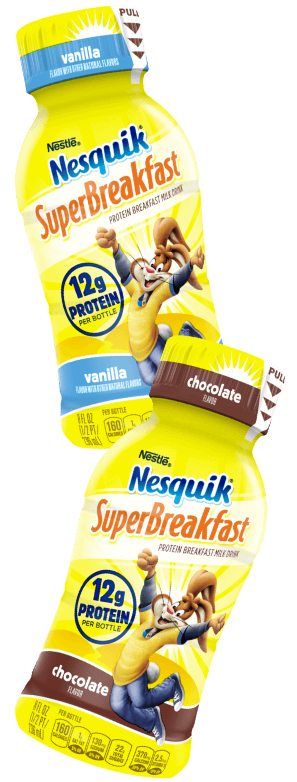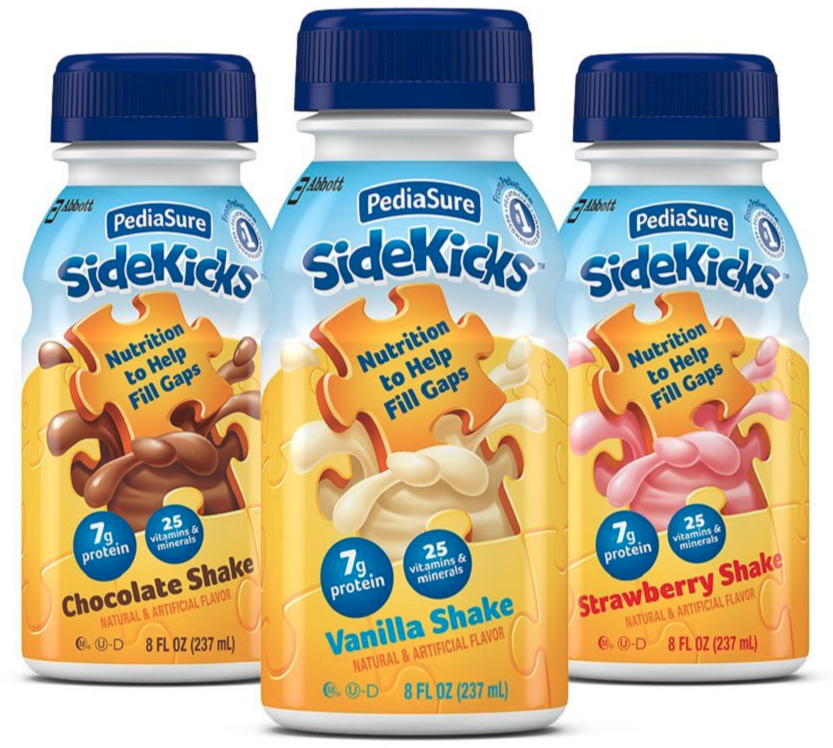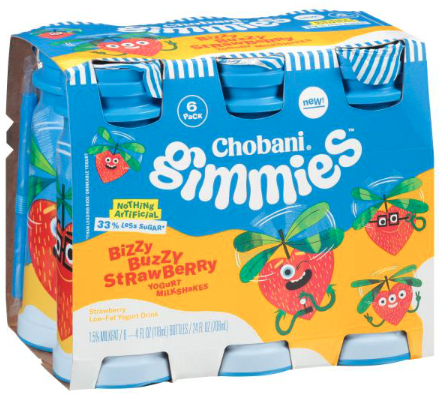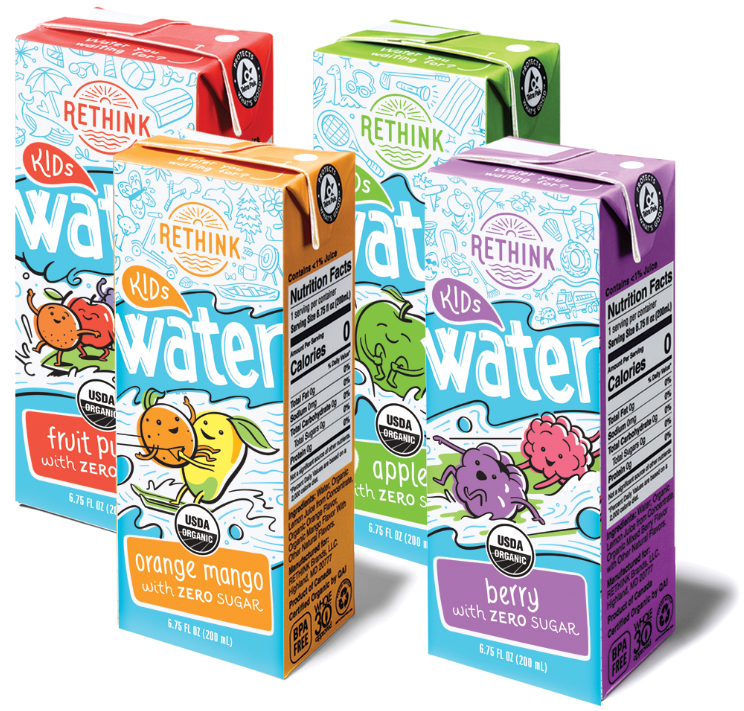CHICAGO — The beverage market for children is a tricky business that requires a special approach to both innovation and marketing. While fun shapes, vibrant colors and character merchandising may garner the attention of children, formulation must appeal to the purchasing parent, and taste ultimately is what matters.
Millennials represent a large constituent of the parent demographic, and many have a different approach to parenting than previous generations, said David Sprinkle, research director, Packaged Facts, Rockville, Md.
Millennials grew up going to Starbucks and are well versed in customization. They were also the first children to have a drinkable yogurt — Danimals — designed to specifically fit into their little hands. The fun flavors and whimsical characters sealed the deal.
“These consumers have a definitive perspective on what is important in products and brands they buy,” Mr. Sprinkle said. “Growth of the multicultural population also bears weight on the family demographic and requires marketers leverage strategies in order to appeal to varied traditional and cultural values.
“As with any food and beverage market, health and wellness trends are an important market factor. Industry players are doing their part through new product development of healthier kid-friendly food and beverages, but there’s clearly room for more players to find a seat at this table.”
and beverage market, health and wellness trends are an important market factor. Industry players are doing their part through new product development of healthier kid-friendly food and beverages, but there’s clearly room for more players to find a seat at this table.”
Parents seek out several key attributes when considering what to buy for their children. Beverages are no exception, according to the Kids Food and Beverage Market in the U.S., 9th Edition from Packaged Facts.
“Parents seek beverages that are all-natural, non-G.M.O., no and low sugar, and have no artificial ingredients,” Mr. Sprinkle said. “Marketers must clearly tout such attributes as parents are very likely to consider information on product labels.”
Still, children emerge as a key influencer over parents’ purchase decisions. Nine out of 10 parents said they buy a new food or beverage that their children ask for at least some of the time, with 20% indicating they almost always do so. This influence provides incentive for marketers to continue to target the end user in promotional efforts.
Nestle USA, Arlington, Va., has used this strategy with the Nesquik Bunny, which first appeared on cans of strawberry-flavored milk mix in the early 1970s. Today, the brand continues to use the animated cotton tail to market milk mixes and ready-to-drink products.
One of the company’s more recent introductions is Nesquik SuperBreakfast, a portable protein breakfast drink. Made with milk, the shelf-stable drink is fortified with milk protein concentrate, vitamins A and D, as well as calcium. The drink comes in chocolate and vanilla flavors and is intended to be an on-the-go breakfast for children.
This type of fortified meal in a bottle is something many of today’s newer parents have always known, so it’s no surprise they are interested in such convenience for their children. The goal of the meal replacement beverages is to provide balanced nutrition — and often calories — for proper growth and development.
 Abbott Laboratories, Abbott Park, Ill., offers a range of nutrition beverages intended for the needs of children. PediaSure Grow & Gain provides complete balanced nutrition, as it is formulated to help children who are at nutritional risk for proper development. PediaSure SideKicks, on the other hand, help parents of picky eaters fill nutrition gaps. The ready-to-drink snack-size shakes have 40% more protein and 25% fewer calories than PediaSure Grow & Gain. They contain a balanced profile of macronutrients and 25 vitamins and minerals.
Abbott Laboratories, Abbott Park, Ill., offers a range of nutrition beverages intended for the needs of children. PediaSure Grow & Gain provides complete balanced nutrition, as it is formulated to help children who are at nutritional risk for proper development. PediaSure SideKicks, on the other hand, help parents of picky eaters fill nutrition gaps. The ready-to-drink snack-size shakes have 40% more protein and 25% fewer calories than PediaSure Grow & Gain. They contain a balanced profile of macronutrients and 25 vitamins and minerals.
Meal replacement is not always the intent with beverages for children. Sometimes parents are simply looking for some additional nutrition to round out the composition of a meal or snack. Protein is often attractive, especially in a macaroni and cheese world.
That is where products like LaLa Good Kids Supersmoothie come into play. Manufactured by Dallas-based LaLa U.S., the drinks come in 3.1-oz bottles and come in packs of six and by the dozen, in two flavors: berry and strawberry. Labels promote that the drinks are made with fruit, feature probiotics and contain no high-fructose corn syrup, or any artificial colors, flavors or sweeteners.
Low sugar content is a common attribute of most new beverages for children, including Gimmies Yogurt Milkshakes from Chobani, Norwich, N.Y. Sold in six packs of 4-oz bottles, the shakes are slightly sweetened with cane sugar. Through the use of chicory root fiber and natural flavors, the shakes have 33% less sugar than the leading children’s drinkable yogurt, according to the company. Flavors include strawberry, cookies and cream, and mint chocolate. Like all Chobani products, Gimmies are made with non-G.M.O. ingredients, no thickeners, preservatives or artificial sweeteners.
 “Options today are lousy or impractical,” said Hamdi Ulukaya, founder and chief executive officer. “It’s either junk food that parents don’t want their kids to eat or food that’s designed for adults that kids don’t want to eat. We wanted to break that cycle, and it’s a challenge we took really seriously.”
“Options today are lousy or impractical,” said Hamdi Ulukaya, founder and chief executive officer. “It’s either junk food that parents don’t want their kids to eat or food that’s designed for adults that kids don’t want to eat. We wanted to break that cycle, and it’s a challenge we took really seriously.”
To develop its latest platform, the company’s innovation team met with parents and children across the United States. The personal connection made it clear that good-for-you foods like yogurt lack fun, and Chobani’s goal was to change that. Gimmies contain just the right amount of sugar to balance the taste of fruit and yogurt, reflecting the American Academy of Pediatrics recognition of the role that a small amount of sweetness may play in encouraging children, who can be picky eaters, to consume more nutrient-dense foods like yogurt.
Just the right amount of sugar is the intent behind several new children’s beverages designed for refreshment and hydration. Rethink Brands, Columbia, Md., is launching Rethink Juice Splash. With only 1 gram of sugar and no artificial sweeteners, Juice Splash is positioned to be the new benchmark in children’s healthy hydration. In a category dominated by brands launched in the 1970s and 1980s, Juice Splash was designed to shake up the status quo and deliver a drink option with flavors children love, the convenience parents need and a health profile both require, according to the company.
The aseptic boxed drink is launching in fruit punch and watermelon flavors, with kiwi strawberry and strawberry lemonade planned for later in the year. The beverage is 95% water that is naturally sweetened with 5% organic juice concentrate. To brighten it, it is enhanced with organic monk fruit and natural flavors. The formulation allows for a no-added-sugar claim, with each 6.75-oz box containing 5 calories and no grams of sugar.
 Rethink Juice Splash complements the Rethink Kids Water line that launched in 2018. The zero-calorie aseptic boxes contain water and natural flavor. They come in apple, berry, fruit punch, orange mango, and watermelon flavors.
Rethink Juice Splash complements the Rethink Kids Water line that launched in 2018. The zero-calorie aseptic boxes contain water and natural flavor. They come in apple, berry, fruit punch, orange mango, and watermelon flavors.
San Francisco-based hint Inc. also has water for children. Available in four flavors — apple, blackberry, cherry and watermelon — the line is water infused with fruit essence. The 6.75-oz aseptic boxes contain no calories. Like all hint waters, the version for children is free from juice, sugar, alternative sweeteners, colors, calories and preservatives.
San Diego-based Villager Goods has introduced Little Villager, a low-sugar and flavorful organic beverage for children that comes in apple juice, fruit punch and pink lemonade varieties. In addition to the standard 6.75-oz aseptic box, as well as a 10-oz single-serve bottle is suitable for older children. Each drink contains 40% juice and has no sugar added.
Large brands want in on the beverage market for children, too. About a year ago, Tropicana Products Inc., Bradenton, Fla., a division of PepsiCo, Inc., Purchase, N.Y., introduced Tropicana Kids, a line of organic fruit juice drinks in fruit punch, mixed berry and watermelon flavors. Tropicana Kids is made with 45% fruit juice and mixed with water, with no added sweeteners or artificial flavors, and is an excellent source of vitamin C.




